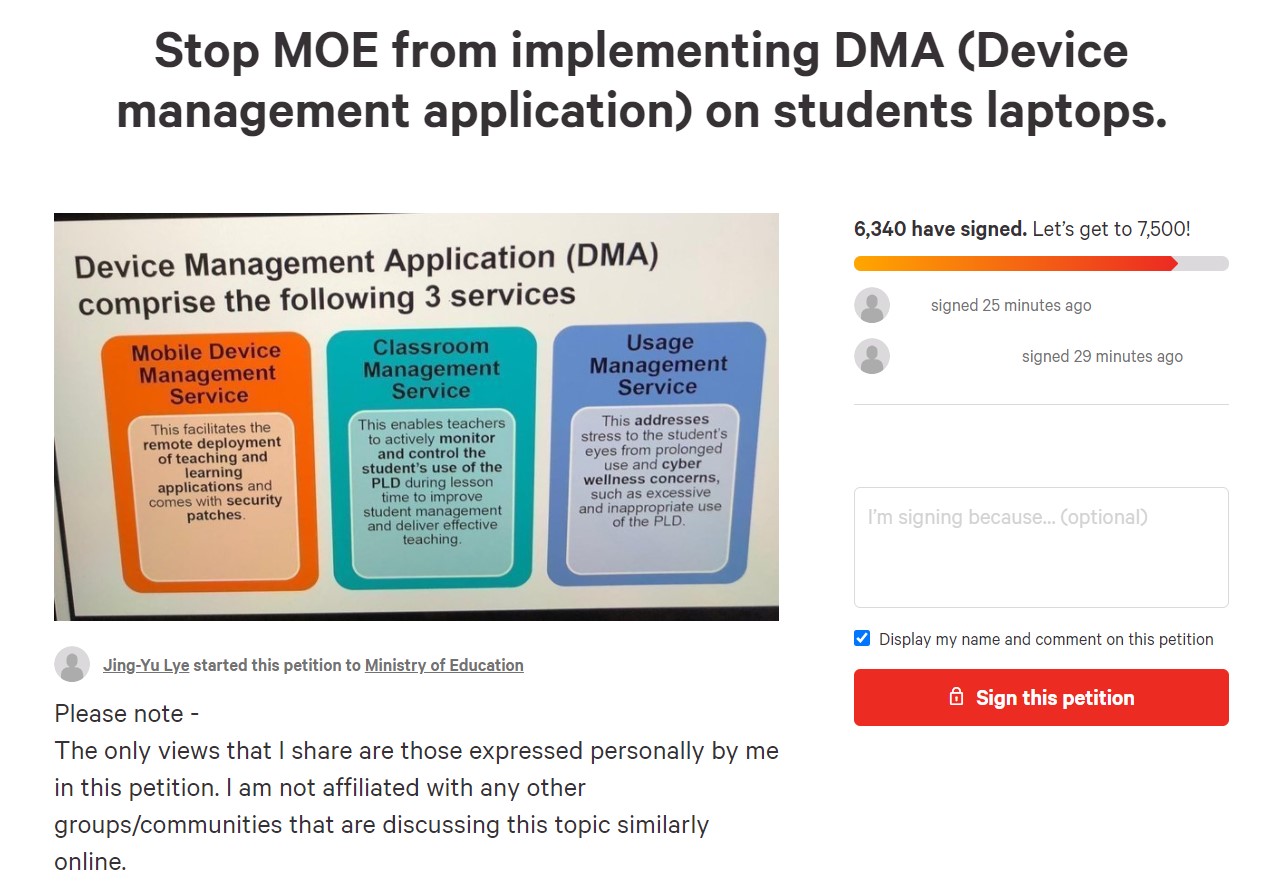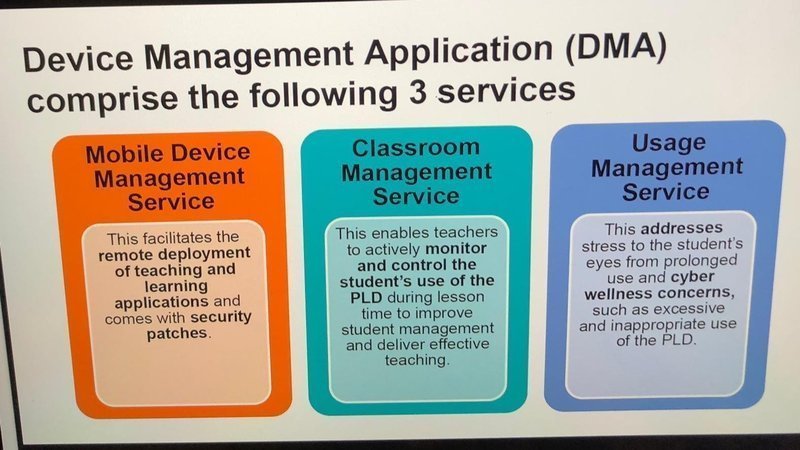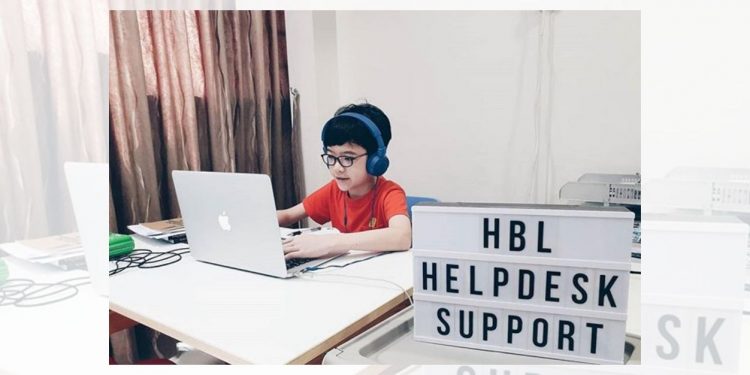Fill Me In
Privacy concerns have been the name of the game in Singapore for the last two months. Much attention has been focused on data from the TraceTogether token being accessible by police (recently restricted by a new bill), and the Ministry of Education’s (MOE) Device Management Application. With the latter, much of the netizens’ worries are centred around the lack of information provided by MOE, leading many to question the necessity for such measures.

MOE has since provided some timely clarification on the Device Management Application (DMA) that it announced was to be installed on all home-based learning (HBL) devices by this year. It will seek to block “questionable” sites – we’re assuming classic “time-wasters” such as Facebook are off the list.
A little about these HBL devices.
Sometime back in June 2020, MOE announced that it was going to offer digital devices to all secondary school students, who would have to pay for them, by the end of this year. This is part of the ministry’s efforts to enable learning from home, in one of the many ways that COVID-19 has changed for good the way we live. Beginning the third term of 2021, students will engage in HBL at least twice a month.
As part of those HBL devices, MOE also announced that a data-capturing software would need to be installed with it. According to MOE, this application would be a compulsory installation in all HBL devices, even if students were to use their own personal devices. This was also in order to address students potentially misusing their devices, apparently allowing teachers to control how the devices were being used, and track how well students were using their devices.
While many of us may remember our teachers being able to see our screens in school computer labs, teachers being able to do that when we’re at home is enough cause for reaction.
What is the DMS that made students start a petition?
Along with a slew of comments by netizens questioning the privacy that students would have, and how their data would be used, a petition was started on Change.org, seemingly by students as well.
The petition details the released features of the DMA, which were grouped into three categories, namely, a “classroom management service,” “mobile device management service,” and “usage management service.”

The classroom management service would allow teachers to monitor personal learning devices, to “improve student management and deliver effective teaching.” In the petition, this aspect was stated to “in other words” to allow teachers to disable student’s personal learning devices (PLDs) at any time, show you content at their own discretion, as well as seeing what content you may currently have.
READ: My Lack of Cyber Wellness Knowhow Landed Me on the Internet’s Dark Side
The mobile device management service was intended to facilitate the remote deployment of teaching material, learning applications, and security patches. “In other words”, the petition says, “this allows the school/teacher to be able to install/run any program, malicious or not, on your PLD, at their own discretion.”
The final indicated rung of the DMA, the usage management service, was to address stress that students’ eyes would suffer from prolonged usage of their devices. The petition explains this as a feature that “effectively allows the school/teacher to be able to control how much one uses a PLD, as well as whitelist/blacklist any programs that you may need to run, with you having no real control over how they can do it.”
Drawing to an actionable close, the petition expresses that students were “unhappy” with MOE’s requirements, due to a lack of control, freedom, and privacy. The petition also draws the observation that even if MOE were to exercise the DMA’s features with safety, students would always remain privy to external risks.
“This may also put many students information and data at risk to hackers, as they can easily access the data if such program is breached… Although we understand that the MOE and schools need some way to control the students, we can not force every student to install the DMA, and instead must reach a compromise”, the petition says.
As of 1 February 2021, the petition has garnered about 6,400 signatures.
MOE’s general response…and clarifications
After the backlash, MOE clarified on 1 February that personal information would not be tracked using the devices, whether location data, identification numbers, or passwords. Data collected would also be stored in protected servers with tightly controlled access.

Mr Aaron Loh, MOE’s divisional director of educational technology, said that the measure “is in line with the Government’s personal data laws and policies to safeguard sensitive data collected by public agencies.”
One way of looking at this DMA would be like the watchful eye of a parent. MOE had also said that the DMA would protect students against content that includes pornography, gambling, and extremism.
With the recent news of a boy as young as 16 years old drawing plans to act on extremist ideologies, perhaps it remains ever important to protect our young – at least when they’re at ‘school’.
Join the conversations on THG’s Facebook and Instagram, and get the latest updates via Telegram.














